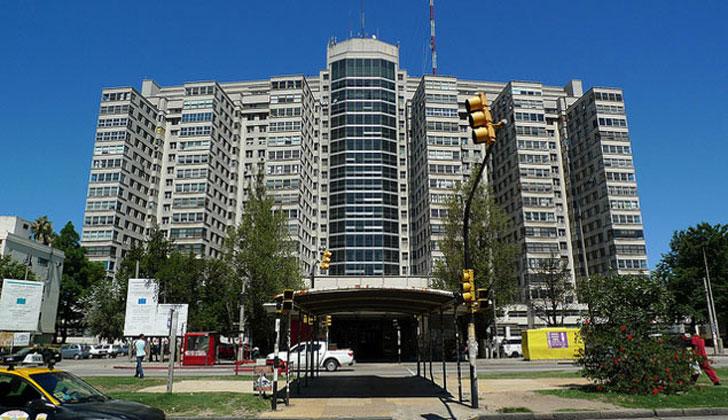TL;DR:
- Uruguay has a reliable healthcare system with public and private options.
- Public healthcare (ASSE) is free or low-cost but may have longer wait times.
- Private healthcare offers faster service and better facilities but at a higher cost.
- Major cities, like Montevideo, have top-notch hospitals and clinics.
- The government maintains high standards through strict healthcare regulations.
- Public hospitals are often crowded and frequented by fewer resources; private care provides quicker and more advanced services.
- Health insurance options for retirees include public insurance, mutualistas, and international plans.
- Quality medical facilities for retirees are mainly in cities; top hospitals include Hospital Británico and the American Hospital.
- Healthcare in Uruguay is much cheaper than in the U.S.; a doctor’s visit costs around $40.
- Mutualistas provide comprehensive care for about $60-$100/month.
- Uruguay offers financial aid and benefits for retirees to make healthcare more accessible.
Thinking about retiring in Uruguay? Wondering if the healthcare system can meet your needs? Let’s dive into the quality and accessibility of healthcare in Uruguay for retirees. From public and private options to the nuts and bolts of health insurance, I’ll give you the lowdown on everything you need to know to stay healthy and stress-free during your golden years abroad. Ready for some firsthand insights? Keep reading!
What is Uruguay’s Healthcare System Like?
When thinking about retiring, healthcare is key. So, does Uruguay have good healthcare? Yes, it does. Uruguay’s healthcare system stands out in Latin America. You’ll find both public and private healthcare. This gives you more choices based on your needs and budget.
In the public system, called ASSE, services are free or very low-cost. But, expect longer wait times and fewer amenities. Private healthcare, on the other hand, offers faster service and better facilities. Yet, it comes at a higher cost.
Now, is healthcare free in Uruguay? In the public system, yes. Most services are either free or cheap. Yet, quality can differ by the location. Major cities often have better resources than rural areas.
Quality of care in Uruguay is decent. Major cities like Montevideo have top-notch hospitals and clinics. Doctors here are well-trained, many having studied abroad. Uruguay’s healthcare ranking is good, often compared favorably with that of developed countries.
How about healthcare regulations in Uruguay? These are strict, helping maintain good standards. The government oversees both public and private sectors. This ensures that services are safe and reliable. Doctors must renew licenses regularly and continue their education.
For retirees, accessibility is pretty good. You can easily find English-speaking doctors in cities. Pharmacies and clinics are everywhere. You don’t need a referral to see specialists, saving you time.
Yet, there are some drawbacks. In public hospitals, wait times can be long. Facilities might not be as modern as those in private hospitals. And while private care is better, it is pricier. Paying out-of-pocket can add up fast.
In summary, Uruguay offers solid healthcare, especially if you choose wisely between public and private options. The mix of quality, accessibility, and regulatory oversight makes it a reliable choice for retirees. For more details, check the official government health site.
How Do You Choose Between Public and Private Healthcare in Uruguay?
Does Uruguay have good healthcare? Yes, Uruguay has a reliable healthcare system. You will find two main healthcare options here: public and private. Choosing between them depends on many factors like cost, quality, and wait times.
Differences Between Public and Private Healthcare Options
Public hospitals provide care at a low cost, sometimes even free. They are funded by the government and serve everyone. Private hospitals, on the other hand, charge fees. These fees are higher, but services are often faster and more advanced.
Cost Comparisons of Public vs Private Healthcare
Public healthcare costs less, but may include long wait times. Private healthcare costs more, but it is quicker. For retirees needing frequent care, private hospitals in Uruguay may be worth the expense.
Advantages and Disadvantages of Using Public Hospitals
Public hospitals can have crowded waiting rooms and limited resources. But they are affordable and available to everyone. In rural areas, the choice might be limited to public facilities.
Benefits of Private Hospitals for Retirees
Private hospitals offer shorter wait times and modern facilities. If you value quick and quality care, these hospitals are a good pick. They provide personalized services and sometimes even a concierge doctor service.
Availability and Distribution of Healthcare Facilities
Healthcare facilities are mostly in cities. Montevideo, the capital, has the best options. In smaller towns, choices shrink. Most private hospitals exist in urban areas, giving those living there better access.
Accessibility and Wait Times in Public vs Private Settings
Public settings struggle with long wait times. For specialized care, the wait can be even longer. Private settings offer relatively instant appointments. This is ideal for retirees needing prompt attention.
Is healthcare free in Uruguay? Public healthcare can be free or very low-cost. Private care is not free but has many perks. Weighing the pros and cons helps you decide what’s best for your retirement in Uruguay. The availability of healthcare facilities varies, so consider where you live.
This guide should aid in making an informed choice between public and private healthcare systems in Uruguay. Make sure to evaluate your needs and financial situation to decide the best option.
What Are the Health Insurance Options for Retirees in Uruguay?
When thinking about retirement in Uruguay, health insurance is key. You need to know your options. So, what health plans are available?
First, you have public health insurance. Everyone in Uruguay can use it. Workers pay into the system, and retirees get benefits. Public healthcare is less expensive, but there may be longer wait times.
Next, there are private health plans. These include options like “mutualistas” or private hospitals. A mutualista is a type of health co-op. You pay monthly fees and get access to private clinics and hospitals. Private hospitals offer faster service and fancier facilities.
If you are an expat, you might look into international health insurance. This covers you in Uruguay and other countries. It can be costly but might be worth it for frequent travelers.
Now, how do you choose the right expat health plan? First, look at your healthcare needs. Do you need special treatments or regular check-ups? Check what each plan covers. Some plans are more comprehensive than others.
For detailed comparisons, the Expat Financial website provides in-depth info on different international plans. Always check customer reviews and ask other expats what they use.
For comprehensive health coverage, make sure your plan covers hospital stays, surgeries, doctor visits, and prescription meds. Consider a plan that includes dental and vision if that’s important to you.
Costs differ based on the coverage you pick. Public plans are low-cost but basic. Private and international ones are pricier but offer more. Monthly fees for a mutualista can range from $60 to $100.
When you relocate, enrolling in a plan is easy. For public health, visit the local Social Security office. For private or international plans, you can sign up online before you move.
Does Uruguay tax U.S. social security? No, they don’t. U.S. retirees can draw their social security benefits tax-free in Uruguay.
Finally, always read the fine print. Know what is and isn’t covered. Prepare for emergencies and choose a plan that meets all your healthcare needs.
Where Can Retirees Find Quality Medical Facilities in Uruguay?
Does Uruguay have good healthcare? Yes, Uruguay has many high-quality medical facilities. For top-rated hospitals, consider Hospital Británico in Montevideo. It is one of the best hospitals in Uruguay for retirees due to its excellent services.
Another top hospital is the American Hospital. It also has great facilities and experienced doctors. This hospital is popular among many expats living in Uruguay.
In addition to hospitals, there are many clinics in Uruguay for retirees. Asociación Española in Montevideo is highly recommended. This clinic offers a wide range of medical services, including specialists and emergency care.
For those looking for top clinics for expats in Uruguay, Clínica del Este in Punta del Este is a good choice. It is known for its modern equipment and expert medical staff.
Finding quality medical facilities in popular retirement areas is important. In addition to Montevideo and Punta del Este, cities like Salto and Colonia also offer quality healthcare facilities. These locations cater well to retirees looking for quality medical care.
When considering the quality and specialties of leading hospitals and clinics, it is important to check what each facility offers. For example, Hospital Británico is known for its cardiology and neurology departments. Asociación Española is famous for its dermatology and ophthalmology services.
Retirees should also look for English-speaking doctors and specialists. Many hospitals and clinics in Uruguay have English-speaking staff. Hospital Británico and the American Hospital are known for having medical professionals who can speak well in English.
Lastly, it is essential to assess the availability and accessibility of emergency services. Most top hospitals have 24/7 emergency rooms. This ensures that retirees can get immediate care when needed. For example, Clínica del Este has an excellent response time and state-of-the-art emergency services.
Uruguay offers retirees many high-quality medical facilities. From top-rated hospitals to highly recommended clinics, there is no shortage of options. With the added benefit of English-speaking doctors and accessible emergency services, retirees can feel confident in their healthcare choices in Uruguay.
How Affordable is Healthcare in Uruguay for Retirees?
Is Uruguay a good place for Americans to retire? Absolutely, especially when it comes to healthcare costs. Uruguay offers affordable healthcare compared to the U.S., making it a top choice for retirees.
Average Costs of Healthcare Services in Uruguay
Medical services in Uruguay are much cheaper than in the United States. For example, a doctor’s visit can cost about $40. Basic medical procedures and specialist consultations are also reasonably priced. On average, a retiree can expect to spend around $75 a month on essential healthcare services.
Comparison of Healthcare Expenses Between Uruguay and the U.S.
Let’s dive deeper into costs. In the U.S., healthcare can be incredibly expensive, so many retirees worry about their medical bills. In Uruguay, medical treatment is not only cheaper but also more accessible. This makes a big difference for those living on a fixed income. According to International Living, healthcare in Uruguay can be up to 70% cheaper than in the U.S.
Analysis of Out-of-Pocket Expenses for Medical Services
Out-of-pocket expenses are also lower in Uruguay. For instance, without insurance, a doctor’s consultation is around $40. Compare this to the U.S., where it could be several hundred dollars. Laboratory tests and diagnostic imaging are also budget-friendly, ensuring you won’t break the bank on routine checks.
Potential Financial Benefits of Retiring in Uruguay Due to Healthcare Affordability
Moving to Uruguay can lead to significant savings in healthcare costs. These savings allow retirees to enjoy their life more fully. With less stress about medical expenses, you can allocate resources to other activities, like travel or hobbies.
Tips for Managing and Planning Healthcare Budgets
Effective budget management is crucial. One key tip is to join a mutualista, a health co-op, which can further reduce your medical expenses. These organizations offer comprehensive care for a monthly fee of about $100, ensuring you get excellent medical services without financial strain.
Availability of Financial Aid and Benefits for Retirees
Uruguay also offers financial aid and benefits for retirees. Scholarships for medical services and subsidies for medication are available, making healthcare even more accessible. These programs are designed to support retirees, ensuring that your golden years are healthy and stress-free.
Understanding the cost and benefits of healthcare in Uruguay can help you make an informed decision. The affordability and quality make Uruguay a fantastic place to consider for your retirement.
Conclusion
Understanding Uruguay’s healthcare system is key for your expat journey. Public and private options each have pros and cons. Health insurance choices and quality medical facilities further support your health needs. Costs are affordable compared to the U.S., making Uruguay an attractive retirement spot.












